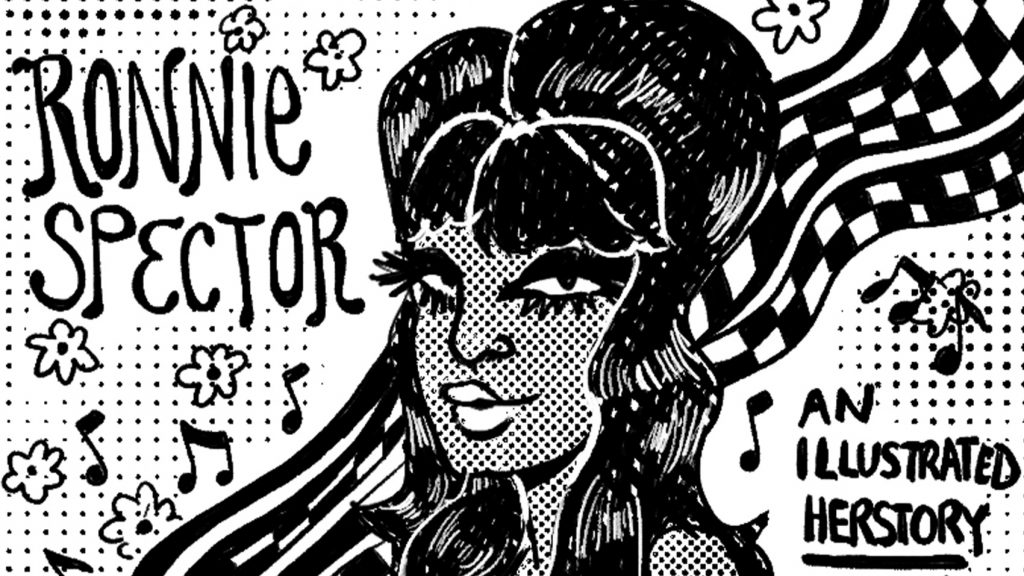The late, great Ronnie Spector was one of the most influential musicians of the 20th century. As the front woman for the legendary girl group the Ronettes, and then as a fierce solo artist (after getting out from under the looming shadow of her abusive former husband/svengali Phil Spector), Ronnie’s work not only had a huge impact on pop, R&B, and rock, but also laid down some of the crucial groundwork for punk. (Just try to imagine what the Ramones or Misfits would have sounded like without her—you can’t.)
After Ronnie died in January, we reached out to our very own Sydney Johnson to take a look back at what made her the absolute coolest.

Ronnie Spector (1943–2022), frontgal of late 50s “girl group” the Ronettes, is widely regarded as the original “bad girl” of rock ‘n’ roll. Ronnie was well connected to every major rock musician of the time, and has intimate stories about hanging out with the likes of Jimi Hendrix, Joey Ramone, and the Beatles.
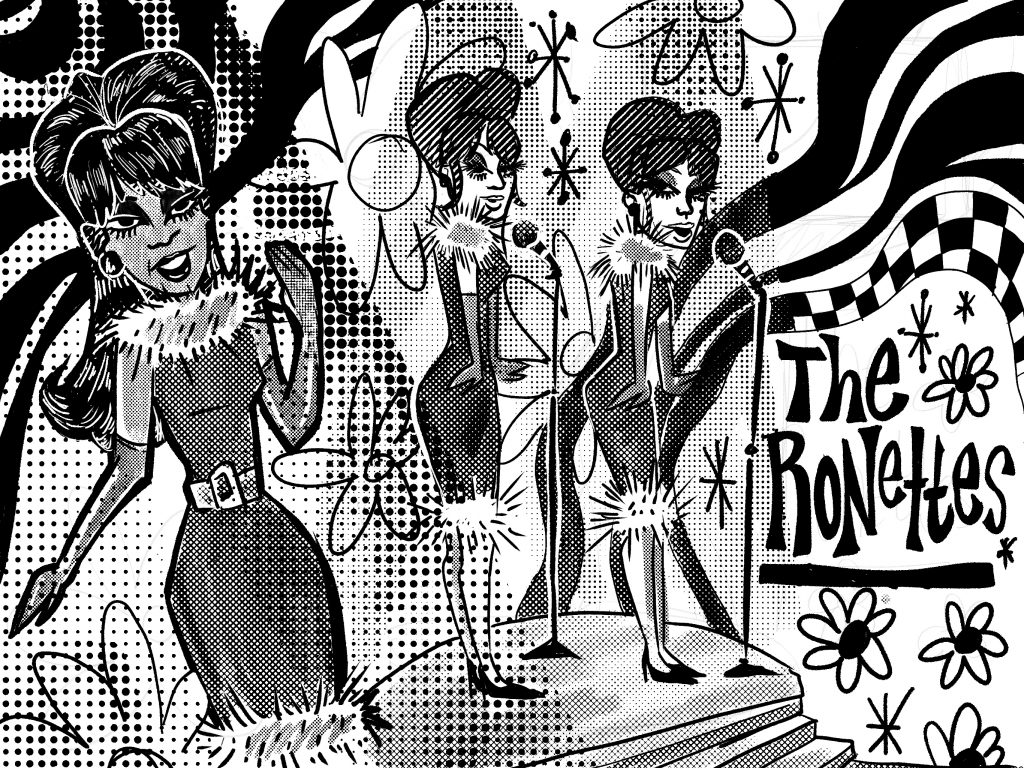
The Ronettes’ claim to fame was their hit ‘63 single, “Be My Baby.” The song was an instant hit—Brian Wilson of the Beach Boys even titled “Don’t Worry Baby” as a reference to the Ronettes single. Not only was the song a big source of musical inspiration for the likes of Cher—who would fill in for backup vocals for the group as a sort of understudy—but the Ronettes’ unique sense of fashion would solidify their place in the roots of rock ‘n’ roll forever. Their big (probably crunchy) teased hair, dark vampy makeup, short skirts, and suggestive (for the time!) dancing would all contribute to their “bad girl” image.
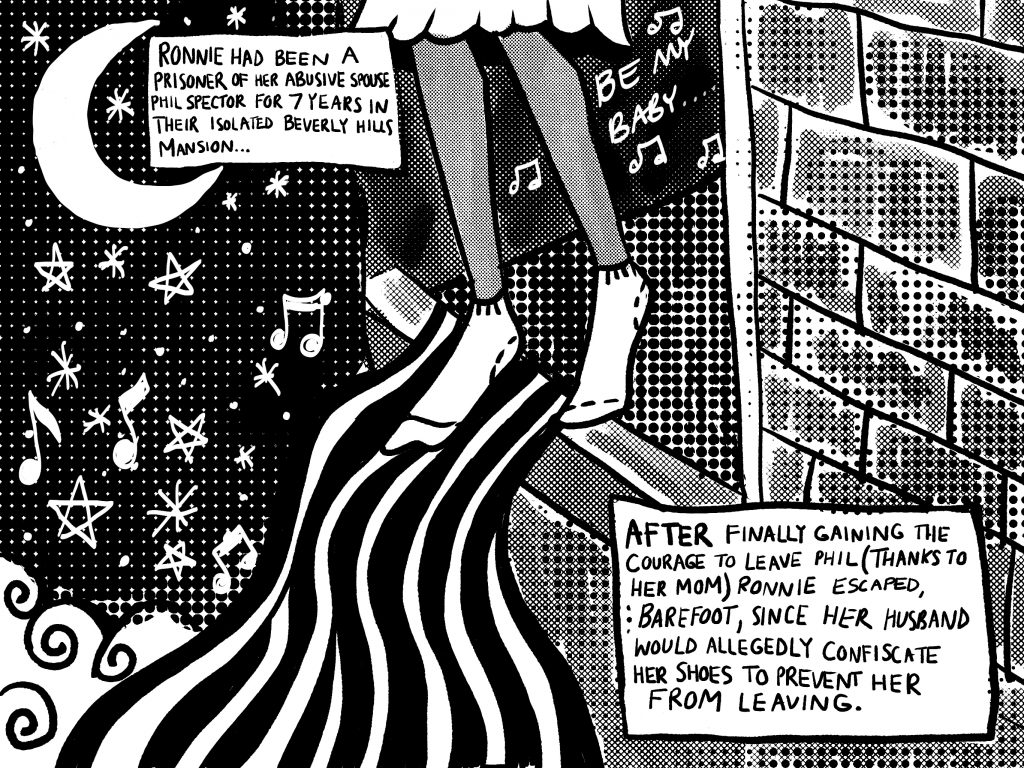
“Be My Baby” was produced by infamous producer Phil Spector, who Ronnie would be married to for almost seven abusive, dreadful years. Ronnie recalls this period of living with Phil as being a prisoner: trapped in their Beverly Hills estate, forbidden to leave without explicit permission from her spouse. The abuse Ronnie endured—the stories of a glass coffin kept in their basement to remind her of the “consequences” of disobeying her husband—eventually was too much to bear. After speaking with her mother, Ronnie escaped (literally) and began rebuilding her life and music career.
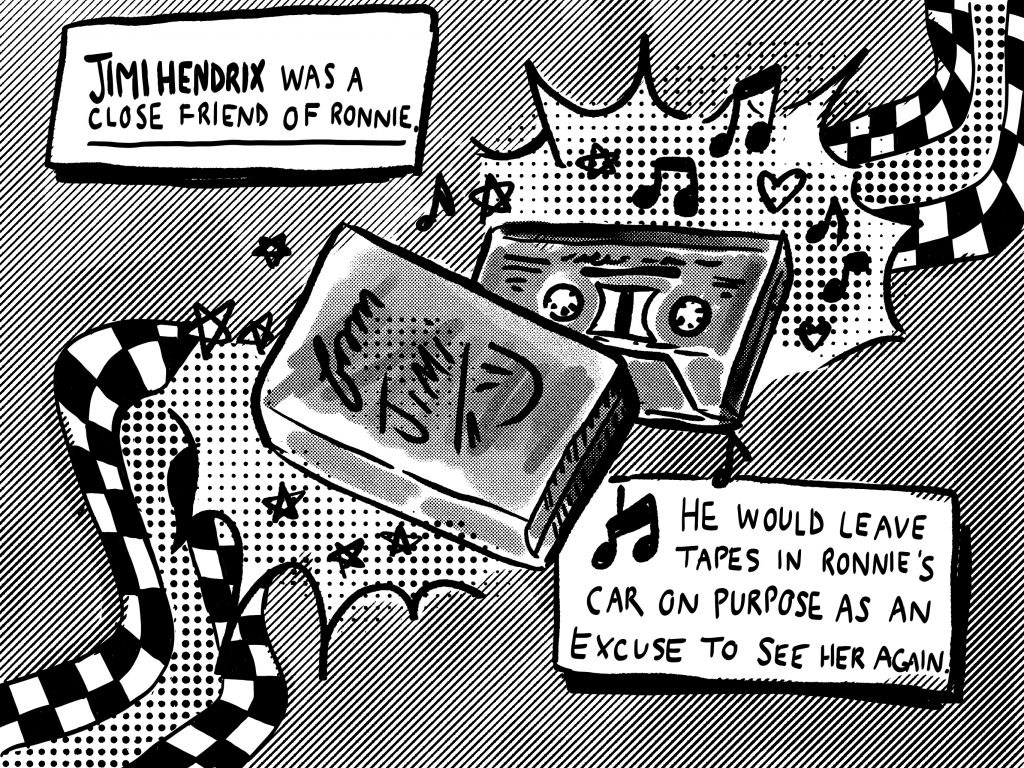
Ronnie has mentioned in numerous interviews that, although she endured such trauma from her marriage to Phil Spector, she kept his last name as a business move. The music industry only knew the famous Ronnie Spector, not Veronica Greenfield. She held on to the name to maintain her fame and recognition—and while in long, spiteful legal battles with her former spouse, she began making her rounds within the rock sphere by hanging out with the likes of Bowie, Hendrix, The Rolling Stones, and even the Misfits.
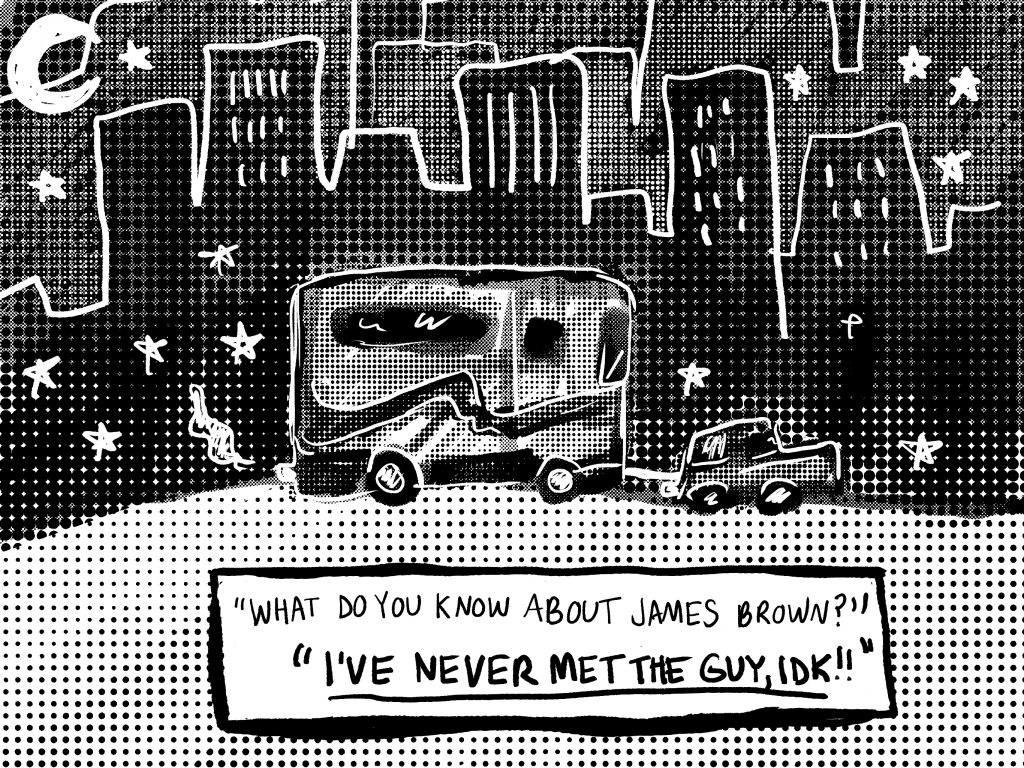
In an interview with Rolling Stone (the magazine), Ronnie recalls being on tour with The Rolling Stones (the band), when this delightfully awkward interaction with Keith Richards occurred:
“Keith used to say, ‘Oh, we would have great babies because you have that black, thick hair and I have black, thick hair.’ Now his is not so black. But they were my opening act. I remember Keith and Mick asking me about James Brown and I said, ‘I don’t even know the guy.’” —Ronnie Spector
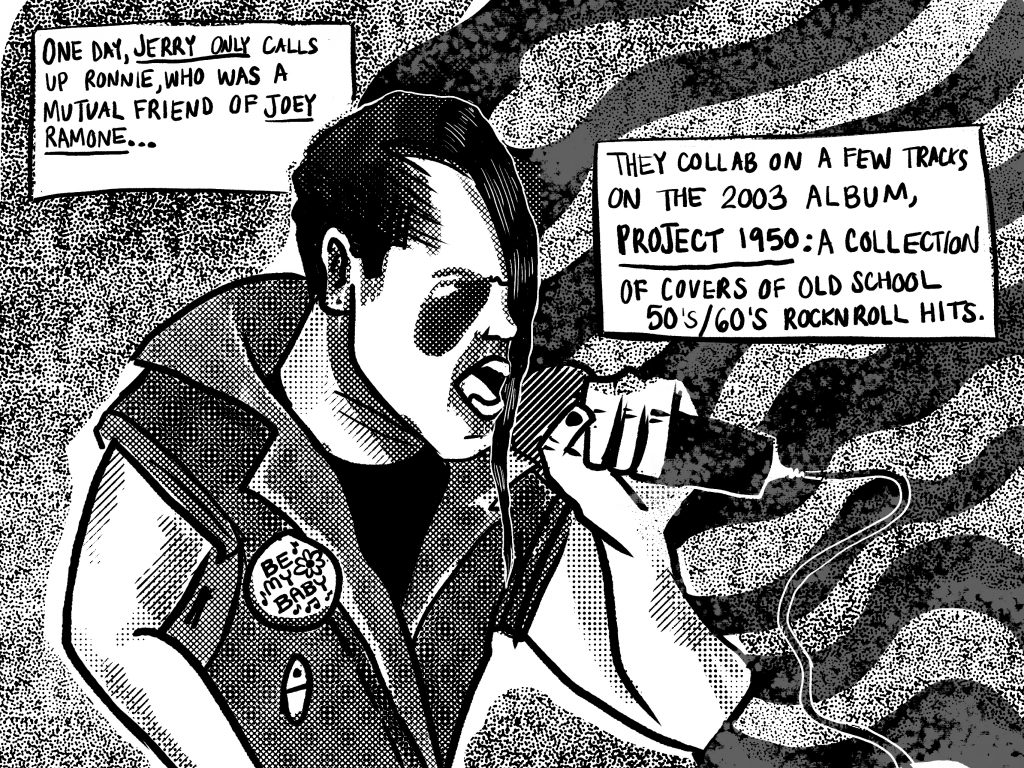
One of the most memorable Ronnie collaborations was for Misfits’ Project 1950, a compilation of covers of hit 50s & 60s rock ‘n’ roll singles where she sang backup vocals on two of the tracks. Jerry Only—frontman at the time—asked Ronnie to collaborate. They bonded over their friendship with Joey Ramone, and created “This Magic Moment,” the main single on Project 1950, along with “You Belong to Me.”
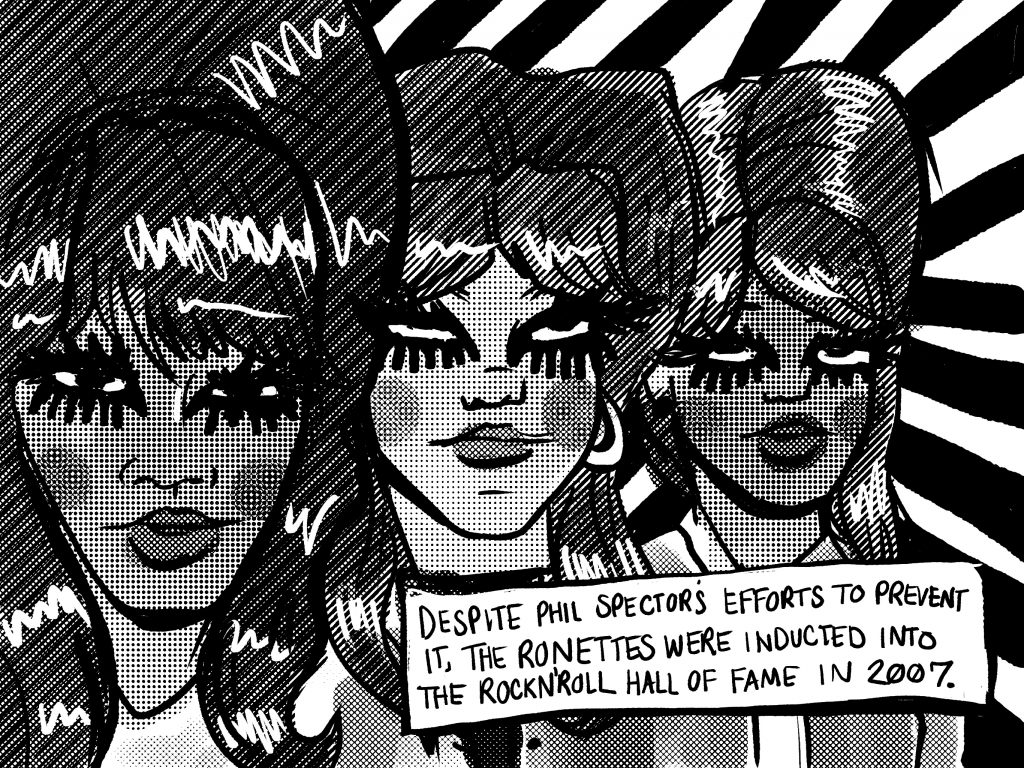
“I didn’t know my voice was supposedly that great because people didn’t tell you back then how great you were. Then it was, ‘Go to the ladies’ room. Re-do your eye makeup, or something.’” —Ronnie Spector
In 2007, The Ronettes were inducted into the Rock and Roll Hall of Fame, where they reunited to perform at the induction ceremony. As of today, Ronnie’s cousin, Nedra, remains the only living Ronette; but Ronnie’s legacy as rock n’ roll’s original “cool girl” will forever be respected and used as a blueprint for boundary-pushing women in rock ‘n’ roll.
